What Skin Care Products Are Best for Rosacea
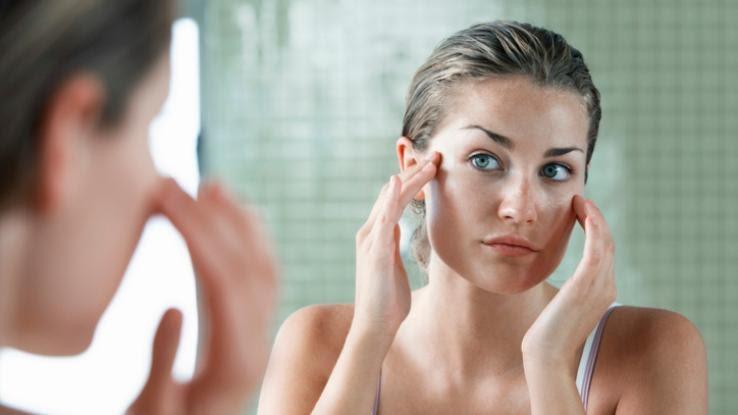
When you first start exploring anti-aging products, you'll likely find yourself hearing a lot about retinol. Often considered the gold standard ingredient of over-the-counter anti-aging products, skincare items formulated with retinol can go a long way towards helping to reduce and even prevent signs of aging from developing on your skin.
But what exactly is retinol, and is it safe to use? Before you incorporate this ingredient into your skincare routine, learn more about retinol and explore some of the best retinol creams and products that can help you enjoy its benefits.
Take one trip down virtually any skincare aisle in any drugstore, and you'll likely discover a wide variety of retinol products designed with one main goal in mind: to reduce the appearance of fine lines and wrinkles. But what exactly is this ingredient, and how does it work?
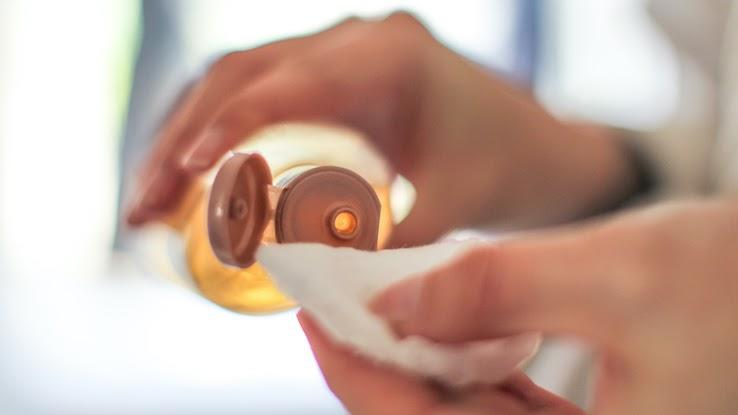
Retinol is derived from vitamin A, which is actually a group of vitamins that have a number of beneficial health effects. One of these is vitamin A's ability to help immature skin cells age properly into mature skin cells, which means it normalizes everything from how your skin looks to the amount of oil it produces. Retinol can also fade dark age spots on skin, even out skin tone, heal skin damage and help with cell turnover to prevent dry skin and clogged pores. Perhaps its most famous benefit, however, is that it can keep your skin from developing wrinkles, fine lines and other signs of aging.
Retinol is often used as an ingredient in facial creams and serums. Given that it increases the skin's sensitivity to light, it's best to work it into your nighttime skincare regimen. When used correctly, some of the best retinol creams can help reduce and prevent wrinkles, even out skin blemishes and even reduce acne outbreaks.
How Does Retinol Work?
Retinol is a potent ingredient that can have some truly beneficial effects on your skin — but how does it go about achieving them? It turns out there are a number of ways retinol works to change your skin from the inside out.
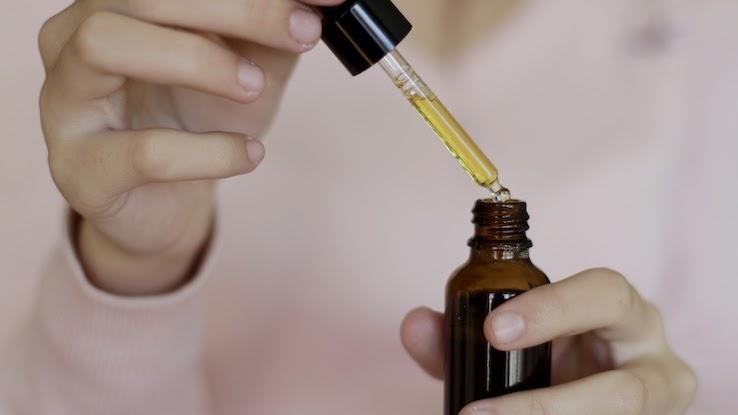
According to Stanford Medicine, "Retinols change how a cell functions, specifically the speed at which a cell turns over, or divides, to create new cells. Retinoids encourage skin cells to divide more rapidly, building up the protective top layer of skin." This means that retinol targets the top layer of skin (called the epidermis), which becomes more vulnerable as its ability to produce collagen and elastin fibers naturally declines with age. As this decline continues, the epidermis begins to thin out, which is when it starts to develop wrinkles, sunspots and changes that affect your skin's appearance.
Harvard Medical School further notes that retinol can stimulate the production of new blood vessels in the skin, which improves its overall color and tone and imparts a healthier, more radiant look. Retinols give the epidermis a boost by stimulating collagen, protecting existing collagen and blocking inflammatory pathways that can cause pimples and acne. In a sense, retinol restores the essential substances in skin that keep it looking young while keeping blemishes and signs of aging from developing.
Potential Side Effects of Retinol
So far, retinol sounds great — and it is for many people. However, you should also be aware that it can have potential downsides.

First and foremost, if you've never used a retinol cream or serum before, you may want to start out by performing a patch test on the underside of your arm before applying it directly to your face. This can help you determine how your skin will react to the product and whether you're allergic. If you experience severe signs of retinol allergies, such as hives, itching, blistered skin, swelling in your face or throat, or difficulty breathing, you'll want to get emergency medical care as soon as possible. If you experience mild side effects such as tingling, redness, dryness, peeling or color changes, it's best to consult your doctor or dermatologist before continuing use of the product.
If you're pregnant or intend to become pregnant, you should use extreme caution and speak to a doctor before using retinol. Consuming and using excess vitamin A can cause birth defects, and, although it's rare, can cause a condition called fetal retinoid syndrome that results in physical and mental abnormalities.
You may want to avoid using retinol on the areas right underneath your eyes, as the skin there tends to be particularly sensitive. Instead, consider a separate product that's designed specifically for the eye area and has a lower concentration of active ingredients to prevent irritation.
Speaking of irritation, it's normal to experience dryness, some redness and increased sensitivity and sensations when you first start using retinol. Your skin should adapt in time. Harvard Medical School notes that it can take three to six months to see visible improvements in fine lines and wrinkles, and it may take up to a year to see full results.
Start Off Slowly With Retinol Application
As mentioned, it's normal for your skin to initially become a bit alarmed when you first start using retinol. There tends to be a sort of "learning curve" as your skin adapts to the accelerated cell growth that retinol triggers.
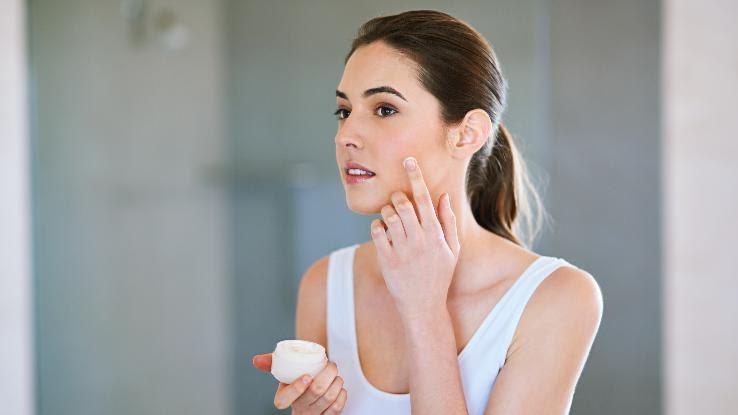
Dr. Brendan Camp, a board-certified dermatologist, recommends taking a slow approach. "People who jump right in and use retinols every night from the very beginning often get 'burned,'" Dr. Camp says. Because of this, Dr. Camp recommends increasing your tolerance to a retinol product gradually by using just a pea-sized amount on your face every third night for your first month of use.
"For the next month, increase the applications to every other night, and after that increase the frequency of application as tolerated," he says. Applying a layer of moisturizer before using retinol or even mixing moisturizer with your retinol cream may also help prevent skin irritation.
What Are Some Top Retinol Products?
If you're ready for a test drive and have discussed any potential retinol-usage issues with your dermatologist, take a look at some of the best retinol creams and serums.
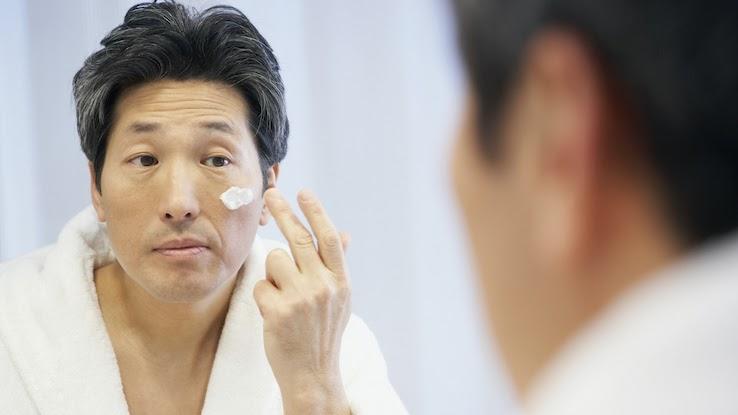
- Formulyst's Anti-Aging Night Cream: This overnight facial cream contains "Encapsulated Retinol Technology" with a high concentration of retinol. That said, it's also formulated with jojoba and safflower seed oils to provide a level of moisture that can help prevent skin irritation.
- Olay Regenerist Retinol 24 Night Moisturizer Cream: Oil of Olay has been a trusted, budget-friendly player in the skincare game for years. They offer a solid Retinol night cream that not only visibly reduces wrinkles and other blemishes but also provides up to 24 hours of moisturizing benefits.
- RoC Deep Wrinkle Retinol Night Cream: If you're looking to start out gently, RoC Deep Wrinkle Retinol Night Cream is a great choice. It contains a lighter dose of retinol than other creams, so it's helpful for gradually getting your skin used to the ingredient.
- Shani Darden Skin Care Retinol Reform: If you've ever wondered how some of Hollywood's top celebrities keep their skin looking so flawless, then Dr. Shani Darden may hold some of the answers. Her Skin Care Retinol Reform cream has developed a cult following thanks to its blend of retinol and lactic acid — another ingredient that brightens skin. It can keep your skin looking youthful while providing enough moisture to reduce irritation.
- Neutrogena Rapid Wrinkle Repair Serum: Neutrogena also offers a great retinol serum that's affordable, lightweight and clinically proven to show visible results. In addition to retinol, it also contains a retinol-boosting glucose complex and hyaluronic acid, which helps moisturize and rejuvenate the skin.
- COSMEDIX Serum 16 Rapid Renewal Serum: If you're experiencing acne or have sensitive skin, then this may be the splurge-worthy serum for you. It's formulated for potency but also includes special hydrators that protect your skin's moisture barrier. The end result is noticeably clearer, younger-looking skin with a lower risk of breakouts.
As always, be sure to talk with your dermatologist or doctor if you have any concerns about choosing the right retinol product for your skin type.
Resource Links:
https://www.mayoclinic.org/diseases-conditions/wrinkles/in-depth/wrinkle-creams/art-20047463
https://www.health.harvard.edu/staying-healthy/do-retinoids-really-reduce-wrinkles
https://ods.od.nih.gov/factsheets/VitaminA-Consumer/
https://www.skincancer.org/blog/when-beauty-products-cause-sun-sensitivity/
https://scopeblog.stanford.edu/2020/08/06/does-retinol-deserve-the-hype-a-stanford-dermatologist-weighs-in/#:~:text=A%20derivative%20of%20vitamin%20A,%2D%2D%20all%20the%20good%20stuff.
https://www.drugs.com/sfx/retinol-side-effects.html#:~:text=Signs%20of%20an%20allergic%20reaction,lips%2C%20tongue%2C%20or%20throat.
https://www.rxlist.com/retin-a-side-effects-drug-center.htm
https://rarediseases.org/rare-diseases/fetal-retinoid-syndrome/
https://www.dermstore.com/blog/what-its-like-to-start-using-retinol-for-the-first-time/
MORE FROM SYMPTOMFIND.COM
What Skin Care Products Are Best for Rosacea
Source: https://www.symptomfind.com/health/best-retinol-products-glowing-skin?utm_content=params%3Ao%3D740013%26ad%3DdirN%26qo%3DserpIndex
0 Response to "What Skin Care Products Are Best for Rosacea"
Post a Comment